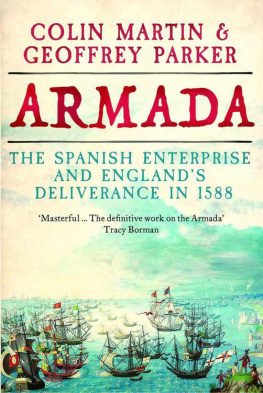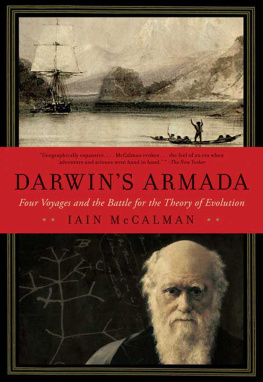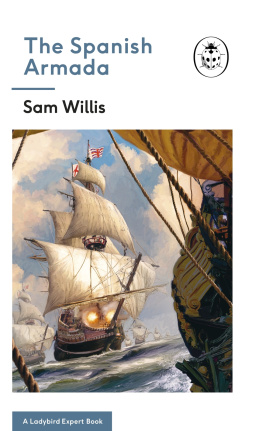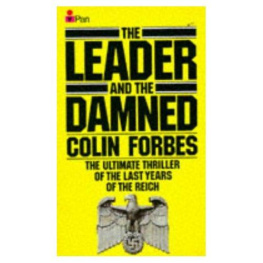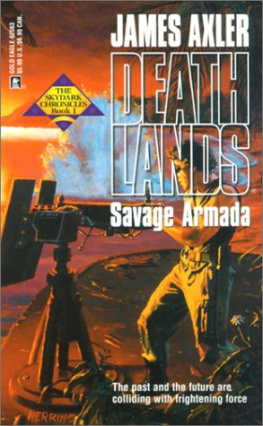Colin Martin - Armada
Here you can read online Colin Martin - Armada full text of the book (entire story) in english for free. Download pdf and epub, get meaning, cover and reviews about this ebook. year: 2023, publisher: Yale University Press, genre: Adventure. Description of the work, (preface) as well as reviews are available. Best literature library LitArk.com created for fans of good reading and offers a wide selection of genres:
Romance novel
Science fiction
Adventure
Detective
Science
History
Home and family
Prose
Art
Politics
Computer
Non-fiction
Religion
Business
Children
Humor
Choose a favorite category and find really read worthwhile books. Enjoy immersion in the world of imagination, feel the emotions of the characters or learn something new for yourself, make an fascinating discovery.
- Book:Armada
- Author:
- Publisher:Yale University Press
- Genre:
- Year:2023
- Rating:3 / 5
- Favourites:Add to favourites
- Your mark:
- 60
- 1
- 2
- 3
- 4
- 5
Armada: summary, description and annotation
We offer to read an annotation, description, summary or preface (depends on what the author of the book "Armada" wrote himself). If you haven't found the necessary information about the book — write in the comments, we will try to find it.
Armada — read online for free the complete book (whole text) full work
Below is the text of the book, divided by pages. System saving the place of the last page read, allows you to conveniently read the book "Armada" online for free, without having to search again every time where you left off. Put a bookmark, and you can go to the page where you finished reading at any time.
Font size:
Interval:
Bookmark:
ARMADA

Published with assistance from the foundation established in memory of Oliver Baty Cunningham of the Class of 1917, Yale College.
Copyright 2022 Colin Martin and Geoffrey Parker
All rights reserved. This book may not be reproduced in whole or in part, in any form (beyond that copying permitted by Sections 107 and 108 of the U.S. Copyright Law and except by reviewers for the public press) without written permission from the publishers.
All reasonable efforts have been made to provide accurate sources for all images that appear in this book. Any discrepancies or omissions will be rectified in future editions.
For information about this and other Yale University Press publications, please contact:
U.S. Office:
Europe Office:
Text designed and set in Adobe Caslon Pro and IM Fell by Tetragon, London
Printed in Slovenia by DZS-Grafik d.o.o.
Library of Congress Control Number: 2022942455
e-ISBN: 978-0-300-26892-8
A catalogue record for this book is available from the British Library.
10 9 8 7 6 5 4 3 2 1
For
Paula Martin
Contents

https://www.yalebooks.co.uk/page/detail/armada/?k=9780300259865:
Conventions

D ATES: On 24 February 1582 Pope Gregory XIII ordered all Christians to advance their calendar by ten days, but different countries adopted the New Style at different times: in Spain 15 October 1582 immediately followed 4 October; in most (but not all) of the provinces of the Netherlands in rebellion against Philip, 25 December immediately followed 14 December 1582; in the provinces loyal to him, 22 February 1583 immediately followed 11 February; and so on. All dates in this book after 4 October 1582 appear in New Style unless otherwise stated, even for states (like England) which rejected the Gregorian Calendar; and throughout we have assumed that each calendar year began on 1 January (and not on 25 March, as in the Julian Calendar or Old Style OS in our notes). Thus Queen Elizabeth delivered her iconic speech to the army at Tilbury on 18 August 1588, just as the Armada rounded the north of Scotland.
M ONEY :To avoid confusion and facilitate comparisons, all sums of money mentioned in this book have been given in Spanish ducats or pounds sterling. In the later sixteenth century, about four ducats made up one pound sterling. Each ducat was roughly equivalent to one escudo (or crown) and to 2 florins; 10 florins were roughly equivalent to one pound sterling.
P ROPER NAMES :Where an established English version of a foreign place name exists (Antwerp, Corunna, The Hague, Vienna) we have used it, otherwise we have preferred the style used in the place itself today (Mechelen, not Malines; Aachen, not Aix-la-Chapelle). Likewise, where a standard English version of the style and title of an individual exists (William of Orange, Philip II) we have used it, otherwise we have preferred the version used by the individual.
T RANSCRIPTIONS :Quotations from English sources have been modernized for ease of reading.
T RANSLATIONS :Unless otherwise stated, translations from Dutch, German, Italian and Spanish sources to English are by Geoffrey Parker. Some technical terms, for example some ship-types, cannot be accurately translated into English, so the Spanish original has been retained. These are listed in the Glossary with explanations and approximate translations. The originals of all Spanish translations will be found in Colin Martin and Geoffrey Parker, La Gran Armada. Una nueva historia (Barcelona, 2023).
Introduction

I T WAS 10 A UGUST 1588 in the North Sea, and the summer weather was unseasonably bad. Before a brisk south-westerly gale, with her storm-canvas set, ran the English royal galleon Victory , scarred by recent battle. Her gaudily painted upperworks were stained by gun-smoke; the royal standard at the mainmast and the flags of St George which whipped from the fore- and mizzen-tops were in tatters. The rigging showed signs of makeshift repair, the bowsprit and mizzen mast had been splintered by shot, and the ships longboat was missing. Although she was still seaworthy, Victory was in no condition to engage an enemy. Her shot-lockers, on which her whole fighting capacity depended, were empty.
Somewhere to leeward lay the huge Armada sent by King Philip II of Spain on the most important mission in the world, with the whole world watching: the conquest of England and its return to the Catholic Church. Despite the longest and fiercest artillery battle which had ever taken place at sea, the Spanish fleet was still loose in the northern seas, its formidable order and discipline largely intact. Its ammunition stocks, though depleted, were not exhausted, while the massed companies of soldiers it carried still rendered the Armada invulnerable to boarding attack. Worst of all, the English no longer knew where it was, or what it might yet do.
In Victory s great cabin her captain, Sir John Hawkins, Treasurer of the Navy, scrawled a postscript to the urgent report he had just completed, apologizing for his poor handwriting: it was done, he explained, in haste and bad weather. His dispatch, addressed to Sir Francis Walsingham, Queen Elizabeths secretary of state, showed Hawkins to have been an extremely worried man. The Spanish fleet, he warned, was still:
Here, and very forcible, and must be waited upon with all our force, which is little enough. There should be an infinite quantity of powder and shot provided, and continually sent abroad; without the which great hazard may grow to our country; for this is the greatest and strongest combination, to my understanding, that ever was gathered in Christendom. Therefore I wish it, of all hands, to be mightily and diligently looked unto and cared for.Eight days later Englands Lord Admiral, Charles Howard of Effingham, in haste and much occupied aboard his flagship Ark Royal , still felt anxious and uncertain about the Armadas movements and intentions, but like Hawkins he had no doubt about its formidable strength. Some made little account of the Spanish force by sea, he confided to Walsingham, but I do warrant you, all the world never saw such a force as theirs was. Even the redoubtable Sir Francis Drake was by no means confident that the threat had passed. Although the Armada might have been driven back towards Spain, a powerful invasion army headed by one of the most determined and capable military commanders of the age still lay on the Flemish coast, poised to embark for England. From his flagship Revenge , Drake warned on 20 August that the queens ministers should not doubt that Alexander Farnese, duke of Parma, being so great a soldier as he is... will presently, if he may, undertake some great matter... My poor opinion is that we should have a great eye unto him.
Englands best-informed contemporary opinion thus did not underestimate the enormity of the threat posed by Philips fleet and yet, as quickly as it had come, that threat evaporated. The Armada had no further tricks up its sleeve: it struggled on between Orkney and Shetland and into the Atlantic in an effort to gain sufficient sea-room for a safe run southwards to the ports of Galicia and Biscay. But fortune did not favour it. The autumn gales of that portentous year the Winds of God, as their Protestant detractors would have it blew early and with unusual violence, driving many of the returning ships towards the western seaboards of Scotland and Ireland. A large number were wrecked, often in cataclysmic circumstances, and the survivors were hounded down with little mercy ().
Next pageFont size:
Interval:
Bookmark:
Similar books «Armada»
Look at similar books to Armada. We have selected literature similar in name and meaning in the hope of providing readers with more options to find new, interesting, not yet read works.
Discussion, reviews of the book Armada and just readers' own opinions. Leave your comments, write what you think about the work, its meaning or the main characters. Specify what exactly you liked and what you didn't like, and why you think so.

